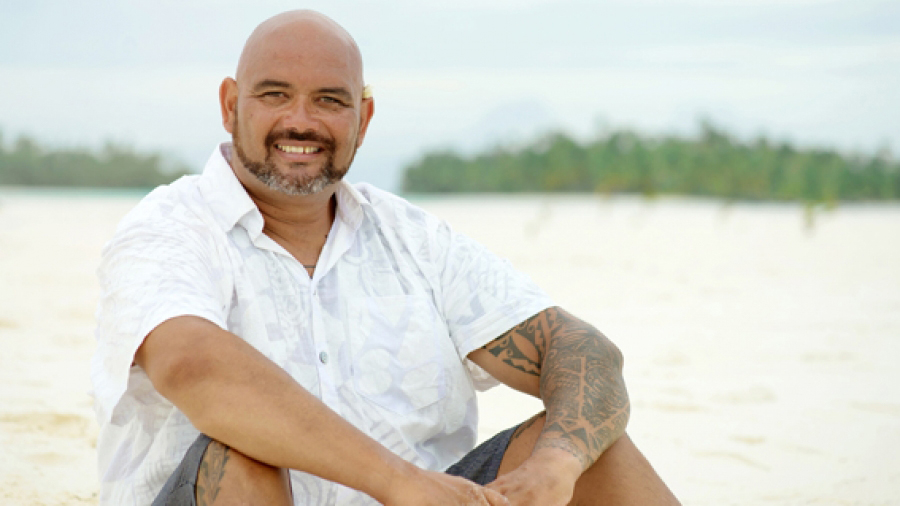Thomas Wynne: A call for solidarity
Saturday 17 February 2024 | Written by Thomas Tarurongo Wynne | Published in Editorials, Opinion

Columnist Thomas Tarurongo Wynne. Photo: CI NEWS/16040843
Am I my brother’s keeper, is a question that funnels down the halls of time, and as Tuakana to our Maori brothers in Aotearoa, what are our responsibilities, if any, towards our teina especially during this critical time for them, asks Thomas Tarurongo Wynne.
As Te Reo Maori, their language is being challenged and its place in government agencies, their place as Treaty partners and the continued debate over sovereignty ceded or not. Or simply the idea that as Māori they have no special place amongst the milieu that is a multicultural Aotearoa, with 100,000 of that milieu being Cook Islands Māori. What is our response?
As we see from the story in Genesis, Cain is asking God if he’s supposed to watch out for his brother’s welfare, and that is the question for us today as Tuakana. And as Cain both lied and deflected God’s question, what is our response to large sectors of Aotearoa Māori who have asked for our support and to stand by them. Do we also deny understanding their predicament and deflect this back to the one who asks, and this time it is the New Zealand government.
Because the word “keeper” in Hebrew is “shomer”, a singular noun form of the verb “shamar”. This verb’s definition is to keep, guard, watch, preserve, protect, or have charge of someone or something. It is not to sit by and do or say nothing? Do we say to them, Aotearoa Māori, you are not our problem, as Cain said to God, and do we also distance ourselves from their life, language and constitutional covenant being extinguished or at the very least reimagined and repurposed by the current government.
Our relationship with Maori from Aotearoa is in our toto, in our blood links, Vaka links and akapapa, be it the stories of Paikea leaving Mauke and then arriving on the shores of Whangara, or the Matataua, and Tainui Vaka that stopped in Aitutaki and Rarotonga, or the Vaka Takitumu, and great fleets that left from Avana, Ngatangiia – the ties between us as Tuakana and teina go deep, are understood, accounted for and written.
Or maybe it is trade as see, but not just in genealogies, also in marriage, business, commerce and trade. In 1863, Ngāti Whātua entrepreneur Paul Tūhaere sailed a 56-tonne schooner called Victoria from Auckland to Rarotonga. The Rarotongans invited Tūhaere to trade with them after hearing about the burgeoning economy of the Waikato, where the followers of King Tāwhiao had planted fruit trees and sown wheat on land that white settlers wanted for themselves. Tūhaere and his hāpu were given land on Rarotonga, and the Victoria was soon sailing back to Auckland loaded with tropical fruit.
Henry Nicholas, one of the passengers on the first voyage of the Victoria, had no intention of staying in Rarotonga. A young warrior and businessman from the Waikato, Nicholas’ father was European, but his mother came from Ngāti Hauā, the iwi who had initiated the Māori King Movement. Travelling to Rarotonga he came not to buy fruit but guns and ammunition for Tāwhiao’s army.
When Tūhaere discovered Nicholas’ mission, he refused to return the young man to Aotearoa. When British and colonial troops invaded the Waikato in July 1863, Nicholas had to make a new life on Rarotonga. After hearing how the invaders had destroyed the orchards of the Waikato, he decided to recreate the kingdom’s economy in the Cooks, planting tens of thousands of orange trees on Rarotonga. Nicholas then acquired shares in a series of ships and continued the export trade Tūhaere had begun.
In the 1870s, Nicholas helped Rarotonga prosper and became a leader both in land, economically, politically and by marrying Matatuiatua Manaveroa and the Nicholas family continues to lead our country today.
In 2023, a study showed that nearly 20 per cent of our Cook Islands Māori population in Aotearoa identified as both Cook Islands Māori and Aotearoa Māori. This is no longer a problem just for our teina, this is a growing problem for our people that walk in both worlds Māori, both Tuakana and teina together. Are we our brother’s keeper, most definitely we are as our grandchildren look up to us for support.




















































